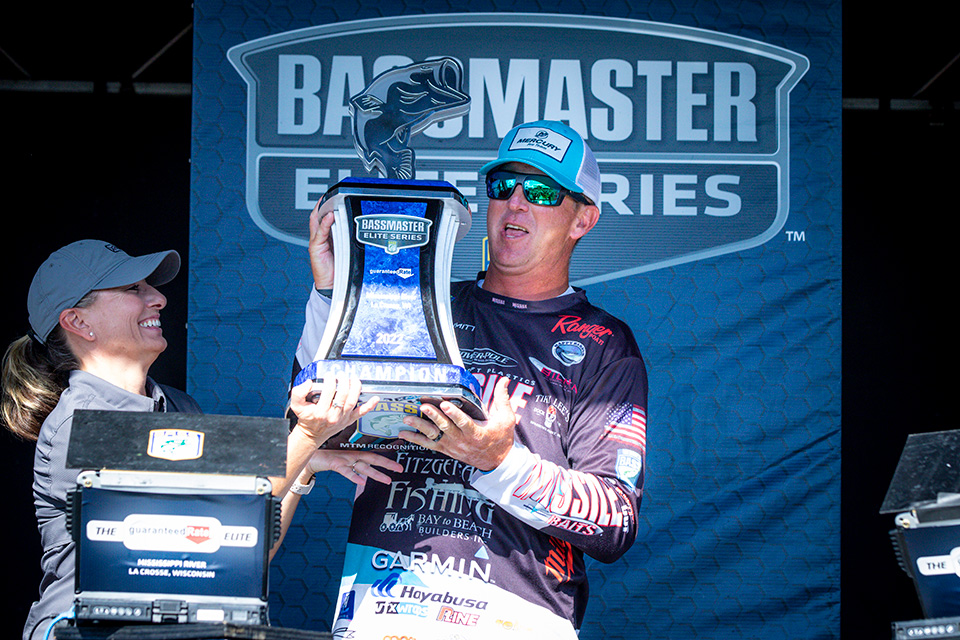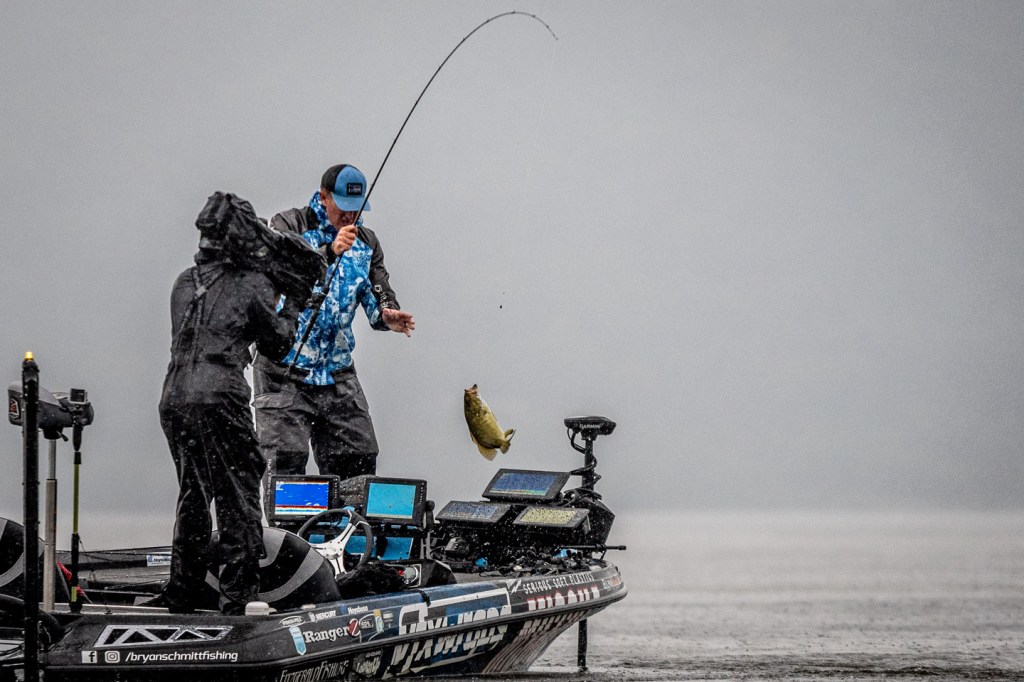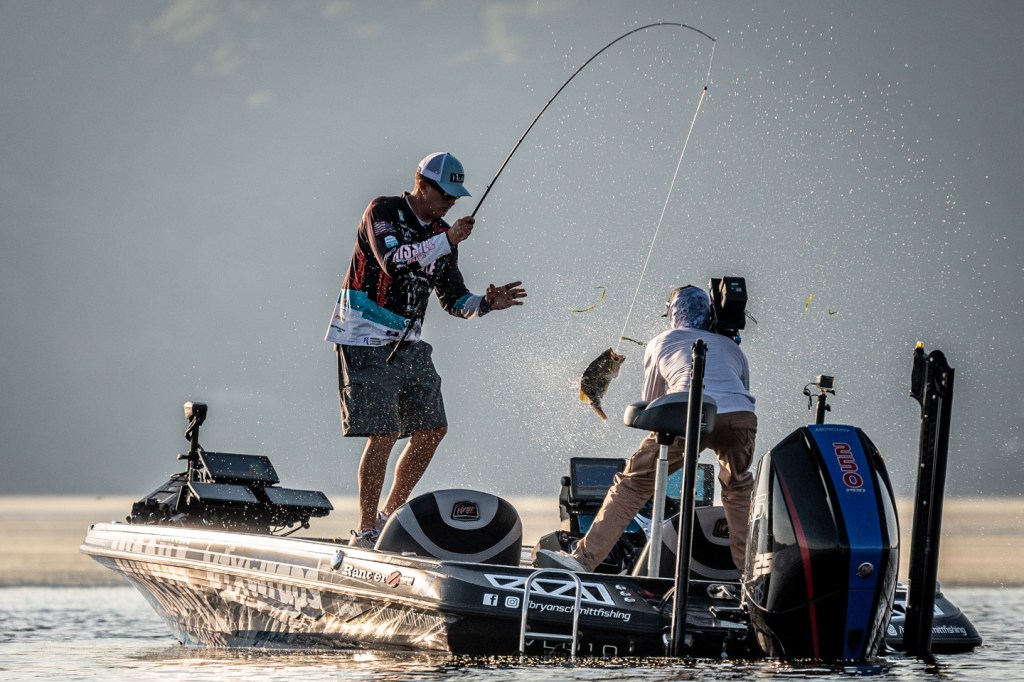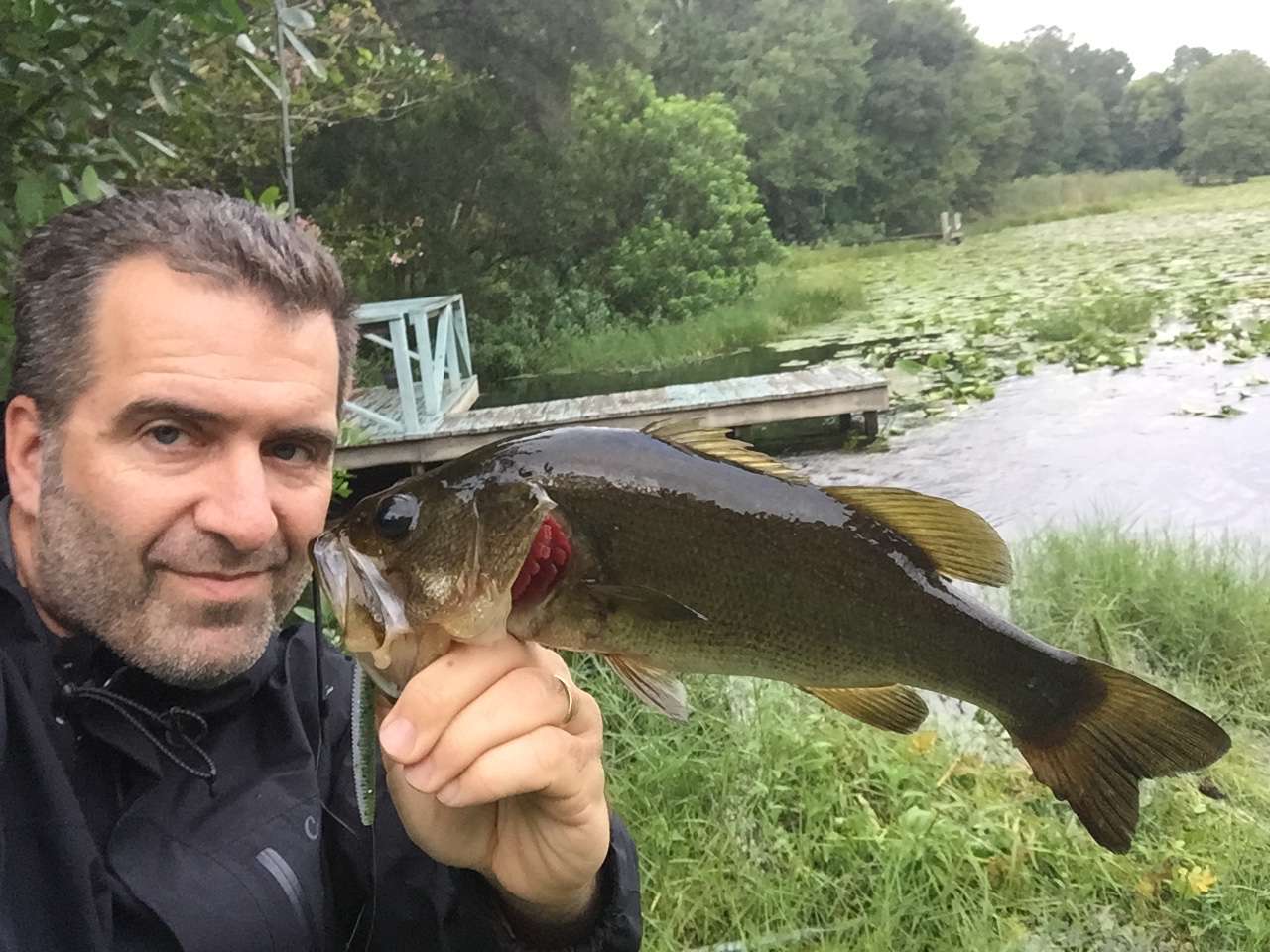
While Bassmaster Elite pros strive for excellence throughout each event, the right combination of variables occasionally align to create the opportunity for superlative performance. Success hinges on seizing the moment, rising to the occasion and turning in a truly memorable performance. Here’s an example from Maryland pro Bryan Schmitt.
Event: 2022 Bassmaster Elite at Mississippi River
Scenario: When the Elites arrived at La Crosse, Wisc., in late August for the final event of the 2022 season, Schmitt found the river low and the grass thick — two factors that would play significantly with the coming changes.
Backtracking a little, this event ran Friday-Monday to allow sufficient travel time from the previous week’s event at Lake Oahe in Mobridge, S.D. Thursday before the event brought heavy rain, with the next two days dropping more precipitation and dim skies — including the second day’s one-hour storm delay.
With a stellar record on the Potomac and James rivers, Schmitt was elated with the increased current, as he knew it would predictably position those Upper Mississippi fish. A rise of several feet and significant mud plumes, however, would complicate matters.
“I was fishing a grass edge in Pool 8,” Schmitt said. “It was just a deep grass edge that had good current, but it was out of the mud flow. It was nothing special, but I caught enough to lead Day 1 (with 17-10).
“I was poled down and caught all largemouth off one exact spot with a wacky-rigged Missile Baits Magic Worm. I felt certain I was going to go there the second day, but I never caught another fish, so I moved down to a different spot on the same grass line and fished there Days 2 and 3.”
The second and third days yielded limits of 14-3 and 14-12, with Schmitt slipping to second, then third place. Frogging, flipping and Carolina rigging caught those two limits, but Schmitt said the fact that Day 3 gave him a tough time probably ended up steering him in the right direction for the win.

The decision: Needing to make something happen that third day, Schmitt relocated to a spot he’d found after easing off his starting hole late into Day 1. Amid the grass flat’s consistent 6-foot depths, Schmitt focused on a 100-yard-long trench with 8 feet of water. The sweet spot — a 50-foot-long rocky patch — delivered what he needed, plus a lot more.
Recalling his Semifinal Sunday challenge, Schmitt said: “The Carolina rig became the deal midway into Day 3 on a spot where I was catching nice keeper smallmouth. They weren’t tournament-winning fish, but those smallmouth turned into largemouth, for some reason.
“At the end of Day 3, I caught a nice 3-pound largemouth there and I’m like, ‘Huh, that’s interesting.’ Something told me to go sit there all of Day 4 and I ended up catching like seven big largemouth.”
Schmitt said he believes the combination of increasing current and main river turbidity put a premium on his trench. There, the largemouth could hunker out of the flow and pick off passing meals in the grass-filtered water.
“That final day, those largemouth showed up,” Schmitt said. “I probably caught 20 throughout the day, but I distinctively remember seven quality bites. But I stayed there all day, because on that river, anything over 3 pounds is just a different class of fish.
“I feel like if you’re around that class, you gotta stay.”
Trusting his experience and instinct, Schmitt locked down and diligently worked his spot. Doing so delivered a Day 4 limit of 16-11 — the final-round’s second-largest catch behind fourth-place Brandon Lester’s tournament-leading 18-7.
Schmitt’s Championship Monday surge gave him a tournament total of 63-4 and pushed him past Chris Johnston — the Day 2 and 3 leader — by 4 ounces to earn his second blue trophy (also Lake Champlain, 2021).
Game changer: While he initially viewed that rocky patch within his deeper trench as a smallmouth limit spot, Schmitt said his Day 3 surprise instantly changed his outlook.
“Seeing that largemouth on Day 3 was a major clue,” he said. “I felt like the other areas where I caught the core of my weight the first couple of days were getting so much attention. After three days, I thought they were starting to get depleted, but the smallmouth spot had no pressure.
“I knew that other deal was going away. I did not know there was going to be a bag of largemouth sitting there the final day, but I knew I had to at least try.”
That final morning, Schmitt reached his spot and found fish blasting bait. Elated with feeding aggression he hadn’t seen all week, Schmitt threw a SPRO Fat Papa Walker for what he still thought would be smallies, only to come tight on a 3 1/4-pound green fish.
“I was like, ‘Oh boy!’” Schmitt said. “It happened right away, so it was like, ‘Okay, we made a good decision.’ When they stopped biting that topwater, I started dragging that Carolina rig and the rest is history.”
Looking back, Schmitt said he now sees the largemouth aggregation wasn’t all that surprising. The way conditions lined up, it made sense that those big, lazy green ones would park in the easy feeding zone.
“The rising water was pulling all the fish in a five-mile area to that one spot,” Schmitt said.

Takeaway: Recognizing that fishing pressure was diminishing the spot where he kicked off his winning campaign, Schmitt knew a little flexibility would serve him better than stubbornness. Also, referencing his previous experience provided insight into what was likely about to happen.
“Going from the low-hanging fruit the first couple of days and maximizing it, but having something else in my back pocket for later in the event, that was the deal,” Schmitt said. “Also, it was my comfort with rivers. I’d been (to the Upper Mississippi) before and I won an FLW Tour event there (2017).
“The same thing happened during that FLW event. We had a ton of rain, and the fish came to me. Because I learned that then, when I caught that big largemouth on Day 3, it was a surprise, but I was like, ‘Hmm, I’ve seen this before.’”
A key piece of the puzzle was realizing that, at least in his area, the smallmouth and largemouth rarely mix. The two species might flip flop on spot dominance, but it’s typically one or the other.
“Because I saw that, I said, ‘They could be coming to this,’” Schmitt said. “Without having seen that before, I might have dismissed that big largemouth as just a fluke bite, but something told me to go there.
“I’ve seen how a river can change quickly and it can make things happen quickly. The current forces the fish to get places. When it’s lazy current, they can spread out, but when the current’s heavy, they gotta position on particular places.”
Finding one of those places rewarded Schmitt with the win.





